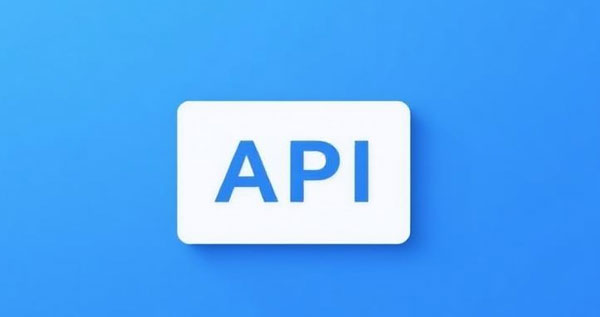How Proxy Services Enhance Web Testing Efficiency and Accuracy
Web testing is an essential step in ensuring that websites and applications function smoothly across different environments. During web testing, testers face challenges related to different geographical locations, devices, and network conditions. With the growing demand for testing, proxy services have become a crucial tool for improving testing efficiency and accuracy. Whether testing a website's global compatibility or conducting load and performance tests, proxies play a vital role.
1. Basic Concepts of Web Testing
Web testing involves checking the functionality, performance, and security of a website or application under various conditions. Testing includes but is not limited to functional testing, performance testing, user experience testing, and security testing. Testers need to simulate real user behavior to ensure the website operates stably in different devices and network environments, without any security vulnerabilities.
2. The Critical Role of Proxies in Web Testing
Proxy services play several key roles in web testing, including hiding IP addresses, bypassing geographical restrictions, increasing concurrency, and data scraping. Proxy services can significantly improve testing accuracy and help testers understand web application performance in different network conditions.
Hiding Real IP Addresses
During testing, proxies can hide the tester's real IP address, preventing frequent testing activities from affecting the operation of the application or website. Additionally, this ensures the protection of sensitive data and privacy during the testing process.Bypassing Geographical Restrictions
Many web applications rely on geographical location to deliver different content or services. Proxy services help testers simulate users from different regions, bypassing geographical restrictions and testing how the website performs in various global locations.Increasing Concurrency in Testing
Proxies support a high volume of concurrent requests during load testing, helping testers assess the capacity of an application under high traffic. This is critical for evaluating the performance and stability of web applications.Data Scraping and Analysis
Proxies can intercept and modify HTTP requests and responses, aiding testers in data scraping, analyzing website behavior, and debugging code. This is essential for debugging web applications and fixing vulnerabilities.
3. Choosing the Right Type of Proxy
Selecting the right type of proxy is crucial for successful testing. Common proxy service types include data center proxies, residential proxies, and dynamic residential proxies, each with its own advantages.
Data Center Proxies
Data center proxies provide efficient and stable connections, typically suited for data scraping, batch tasks, and high-frequency requests. These proxies are affordable and can support high-concurrency tests, making them ideal for performance and load testing.Residential Proxies
Residential proxies come from real household networks and offer higher anonymity. They help simulate users from different geographical locations, making them suitable for SEO monitoring, brand protection, and social media operations.Dynamic Residential Proxies
Dynamic residential proxies offer high-frequency IP rotation, ensuring the IP is not blocked during testing and maintaining the stability of the test environment. These proxies are ideal for tests requiring high privacy protection, large concurrent requests, and rapid IP switching.
4. Applications of Proxies in Web Testing
Proxies have multiple applications in web testing, including SEO monitoring, market research, brand protection, and more. These applications not only improve the accuracy of testing but also help testers perform tests in different geographic environments.
SEO Monitoring
SEO rankings are influenced by geographic location, so using proxy services allows testers to simulate search requests from different regions. This helps to better understand a website's SEO performance globally. Luckdata’s proxy services offer real IPs from over 200 regions, helping testers bypass geographical restrictions and conduct accurate SEO monitoring.Market Research
In market research, bypassing regional restrictions and collecting accurate data is crucial. Luckdata’s residential and dynamic residential proxies provide seamless data collection, allowing testers to break through geographic barriers and efficiently scrape data from target regions for precise market analysis.Brand Protection
Companies can use proxy services to monitor their online environment, detect counterfeit products, and prevent brand infringement. Luckdata’s proxy services help businesses simulate users from various regions, monitor brands, and enhance global brand influence. This allows brands to respond to potential threats in the market in a timely manner.Web Testing
During web testing, proxies help testers hide their real IPs, ensuring the security of the testing environment. Luckdata’s dynamic residential proxies offer high-frequency IP rotation to ensure uninterrupted testing, helping testers improve the efficiency and accuracy of web tests.
5. Security and Compliance
When choosing a proxy service, it is essential to ensure that the service provider follows strict security and compliance standards. Luckdata adheres to high standards of business ethics and compliance, ensuring the privacy and security of all client data.
6. How to Implement Proxy Configuration
Proxy services are typically configured through programming. Below is an example of how to configure a proxy and send a request using Python:
import requestsproxyip = "http://Account:Password@ahk.luckdata.io:Port"
url = "https://api.ip.cc"
proxies = {
'http': proxyip,
'https': proxyip,
}
data = requests.get(url=url, proxies=proxies)
print(data.text)
Luckdata provides stable and fast proxy services, allowing testers to easily start web testing with real IPs from around the world and high-performance proxy services.
7. Conclusion
Proxy services play an indispensable role in web testing. Whether for SEO monitoring, market research, brand protection, or load testing and performance testing, proxies effectively enhance testing accuracy and efficiency. Luckdata’s diverse proxy solutions not only offer fast and stable proxy IPs but also help testers simulate real user environments globally, ensuring the optimal performance of web applications.




